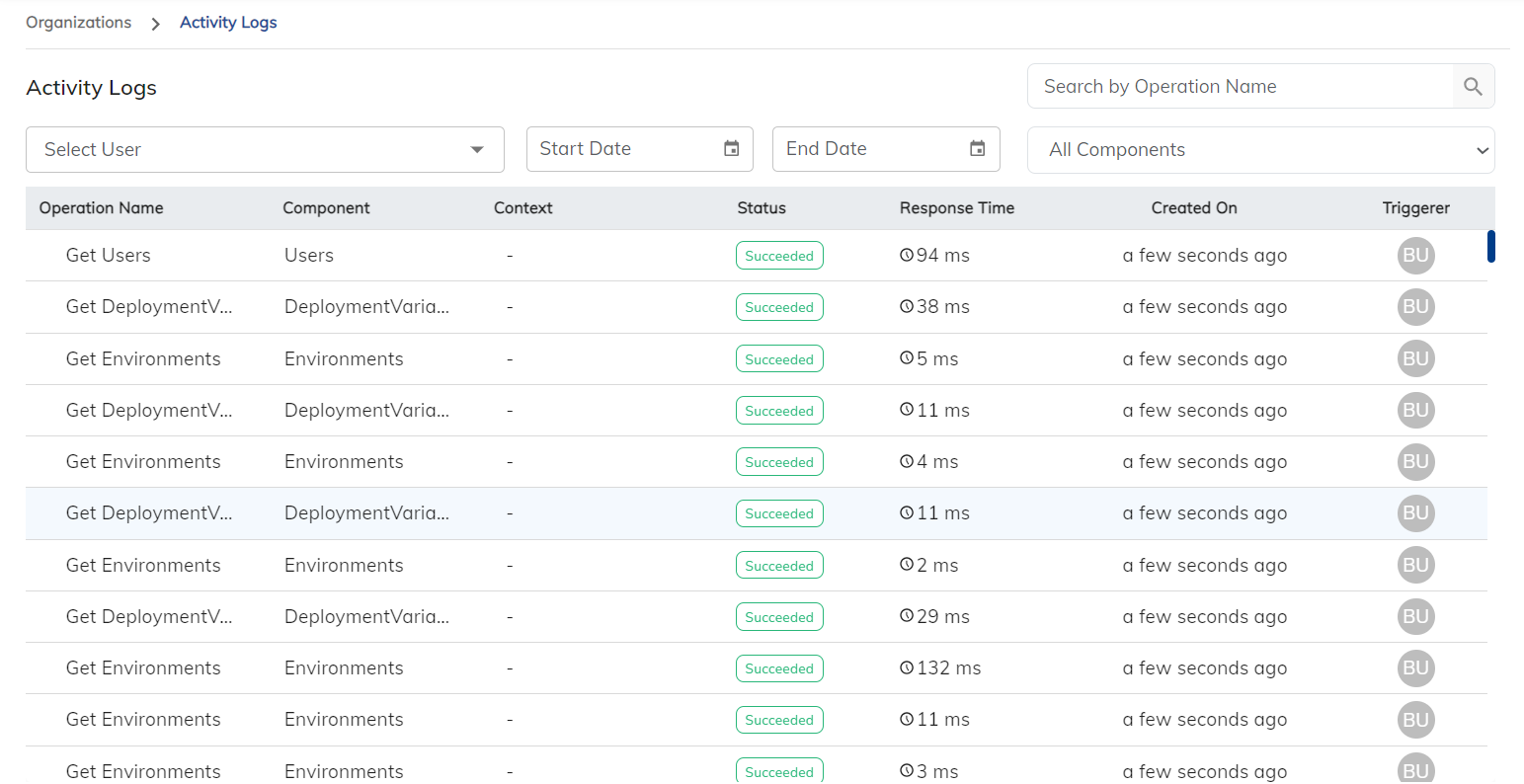Introduction
Overview
Logging refers to the practice of recording events, actions taken by users when accessing any system. The main purpose of logging is to provide a detailed record of activities, errors and other relevant information that can be useful for troubleshooting, debugging, and monitoring the software. These logs serve as a valuable tool for developers, administrators, and support teams to understand the behaviour of the software, identify issues, and diagnose problems.
It is important to analyse the user activity since it helps in understanding how the user interacts with the system as it provides valuable insights from user experience and feature optimization to security and performance monitoring. Keeping these in mind BOS provides logs which will be very useful to the users.
User activity logs, commonly referred to as audit logs, are records that capture and store information about actions performed by users within an application. These logs provide a detailed account of who did what, when, and from where, offering a comprehensive view of the interactions occurring within a given application.
Importance
- Monitoring and Incident Identification
- Performance Analysis
- Resource Optimization
- User Accountability
Structure
- OperationName: Action performed by the user
- Component: The resource or object on which the action was performed
- Context: Any additional contextual information relevant to the activity
- Status: Success or Failure
- ResponseTime: The time taken to perform the action
- CreatedOn: The date and time when the activity occurred.
- Triggerer: Information about the user performing the activity

